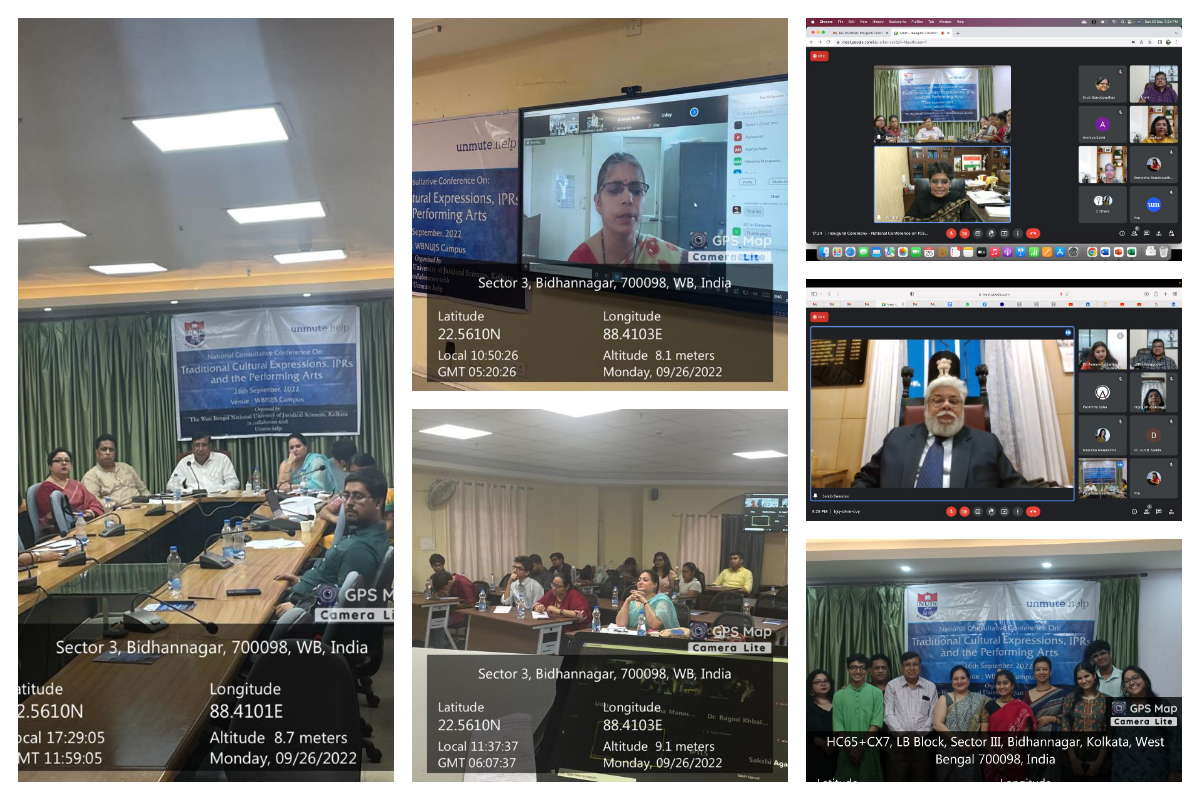In view of the lingering chasm felt by the artistic community vis-à-vis the perceived complexities of the law, – brought to a head by the massive strides made in technology savvy and consumption, – the West Bengal National University of Juridical Sciences Kolkata, with the support of Hon’ble Vice Chancellor, Prof. (Dr.) N.K. Chakrabarti, and in collaboration with Unmute.help (a collaborative, artiste-owned, artiste-initiated free-access public platform for legal literacy and broad-spectrum knowledge resources required for performing artists and allied persons/bodies) – put together India’s first ever national consultative conference on Traditional Cultural Expressions, Intellectual Property Rights & the Performing Arts with a focus on Copyright Law and Ancillary Laws.
The conference, inaugurated by Mrs. Justice Prathiba M. Singh (Hon’ble Judge, Delhi High Court) and closed by Mr. Justice Sanjib Banerjee (Hon’ble Chief Justice, Meghalaya High Court) – was attended by experts from the field of Intellectual Property Law, as well as the performing arts community, and sought to provide a much-needed interface to the many voices from among the performing arts community with some of India’s leading legal minds, articulating concerns about rights, responsibilities and protections, with the ultimate aim of bringing about a genuine intersection between the arts and the law, – and opened up hitherto untapped, and more dedicated avenues of policy-level introspection and review.
The deliberations were flagged off by elucidating a few key fundamental concepts regarding both, tangible and intangible traditional cultural expressions (TCEs), and their interplay with Intellectual Property jurisprudence at both, the international and domestic levels. This was followed by diverse illustrations from the field encompassing domains such as, linguistics, poetry, music, dance, martial arts, textiles, garments, pottery, jewellery, methods of agriculture, horticulture, weaving, scripting, painting, and a variety of artistic and artisanal expressions.
Concerns were raised regarding the perceived silences in the law (and its enforcement) with respect to the issue of equitable attribution of credit and remuneration to the traditional custodians of these art forms. Towards this end, multi-pronged recommendations were made for the way ahead, and for every level from conception to realisation, ranging from generating greater awareness & legal literacy among the masses by demystifying the language of the law, to streamlining the existing system by judiciously inserting in-built checks & balances, to putting together a Creative Commons bespoke for India’s needs, to advocating for instituting a National Intellectual Property Enforcement Authority.
The conference closed with a unanimous consensus on the need for re-envisioning the nation’s cultural policy, predicated on a foundation of unimpeachable core ethics.











 Users Today : 270
Users Today : 270 Users Last 7 days : 4611
Users Last 7 days : 4611 Total views : 1099167
Total views : 1099167